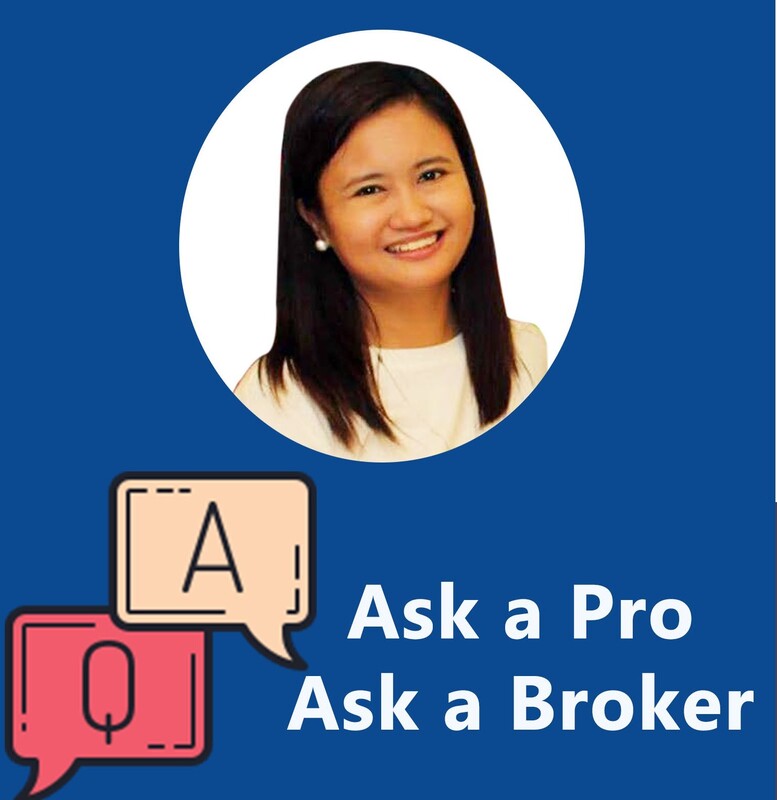|
In general, there are 3 common types of financing:
1) Bank Financing - Available to almost all developers - Interest rates from 5%-10% - Loan term up to 30 years (varies per bank) - Processing time as fast as 5 working days - Processing fee averages from 1%-2% of the loan amount 2) PAGIBIG Financing - Eligible to PAGIBIG members - Available to selected developers only - Maximum loanable amount is P6,000,000 - Interest rates from 5.35%-10% - Loan term up to 30 years - Fastest processing time is 15 working days - Low processing fee 3) In House Financing - Financing offered by the developer - No income documents required - Interest rates from 12%-19% per annum - Maximum loan term is 10 years - No processing fee - Usually availed by foreigners, buyers with no income documents, buyers with bad credit score and not approvable by the bank, buyers with complicated status If you intend to avail of a housing loan, before buying, check which financing option would be best for you and applicable to the property you are eyeing to buy. For bank financing, you may ask your broker to assist you in getting a pre-approval first before purchasing. You may get the services of a licensed broker to guide and help you in finding the right investment for you. Feel free to reach me. All the best to you! It is really saddening to hear when a buyer wants to cancel a condominium he purchased, because you know, investing in a property is one of our dreams. Right? And having the chance to purchase at preselling stage is really one great opportunity. However, not everyone gets lucky. There are many reasons for this situation happening, here are just some:
- Buyer was not properly educated by the agent - The agent left the buyer alone right after getting the reservation making him not able to monitor the status of client’s account - Buyer did not have buffered funds to cover in case of any emergencies - Buyer suddenly in need of cash or suddenly lost income which makes him unable to sustain the monthly payments Whatever the reason may be, first, think it through. And instead of cancelling, sell it. As per Maceda Law, if you have been paying for at least 2 years, you may get 50% of all payments you have made. Otherwise, chances are you get nothing. That is why it is important to get educated before investing and dealing with a trusted real estate professional. You may get the services of a licensed broker to guide and help you in finding the right investment for you. Feel free to reach me. All the best to you! In applying for a housing loan, a borrower will undergo credit investigation. There are several factors for the banks to approve you of a housing loan as well as being disapproved. Here are some basic things to ensure higher chances of getting approved:
> Submit complete requirements > Properly declare truthful personal information (one common concern is the marital status) > Your ITR, Pay slip, COE and other proof of income documents must be sufficient. Again, the monthly amortization must be at 30% of your monthly gross income. If married, income of both spouses can be combined. > You have good credit standing. You must not have any outstanding credit card debt, unpaid loans and the likes. > You don’t have any legal case filed against you. Again, these are just some of the basic eligibilities for securing a housing loan. Banks may not give the reason for disapproval due to confidentiality. You may get the services of a licensed broker to guide and help you in finding the right investment and assist you in financing application. Feel free to reach me. All the best to you! Ideally, if you want to invest in real estate, particularly in pre-selling properties and plans to avail the flexible payment terms offered via installment, it is advisable to set a monthly budget equivalent to 30%-40% of your gross monthly income for the monthly down payment. This is also the amount of monthly amortization approvable by the banks if you plan to finance the remaining balance of the total contract price of the property.
Also, for better chances that the whole amount of the remaining balance will be covered by the bank for financing, it is advisable to avail at least 20%-30% down payment, no more lower than that. Otherwise, the bank will only approve you partial amount of the balance you intend to loan and you would need to shell out a lump sum amount to cover the remaining payment needed. You may get the services of a licensed broker to guide and help you in finding the right investment for you. Feel free to reach me. All the best to you! Unfortunately, there are a lot of cases where a person bought a condo unit at preselling but were unable to sustain the monthly payments that they ended up losing all the money they paid. Here are some tips to avoid this to happen to you:
1. Make sure that the monthly payments are only equivalent to 30% of your gross monthly income. 2. Have an emergency fund equivalent to at least 6 months of your monthly expenses. This will help you in continually paying and avoiding default in the event that you got financially tight and needed to liquidate the property. 3. Before investing, have a clear goal and a backup plan. It is important to not let yourself go into default. If you are financially confident and ready to invest, it is best to invest now than later. The money you save in the bank does not earn reasonable interest. The property that you are looking into right now will be much more expensive later than the money you saved will not be enough. You may get the services of a licensed broker to guide and help you in finding the right investment for you. Feel free to reach me. All the best to you! If you want to sell your unit, it is highly recommended that you sell it during the pre-selling stage. Assuming that you bought this at the early stages, let’s say, 4 years to turnover, preferably open your unit to the market for sale at least 6 months prior to its scheduled turnover date, if you already have a potential buyer. Or at least 1 year prior to its scheduled turnover date if you are still going to look for a buyer of the property. This is to give time for the transfer of ownership process and for the buyer to have enough time to process his bank loan should he needs to finance the remaining balance.
Another thing to note are the taxes and fees involved. If you sell during the preselling stage, you will only need to pay the admin fee of the transfer. Unlike if you sell when it’s already RFO and the developer has already processed the title transfer to your name or if the title has already been transferred to you, you would need to pay the Capital Gains Tax of 6% (seller) and usually to the buyer - DST, Transfer Tax, Registration Fees and other fees necessary for the transfer. So basically, selling during the preselling stage is much more ideal because of less documentation and less taxes and fees. You may get the services of a licensed broker to guide and help you in your real estate transactions. All the best to you! If you’re buying for rental income or you need to use the property and you have the ready cash, go buy a ready-for-occupancy unit. This way you can immediately rent it out and enjoy the fruits of your investment. RFO types of properties require big cash out. Note that aside from the funds you need to pay the unit, you would also need funds for the fit-out of your unit plus other miscellaneous expenses. Also, it will be best to find a property at a good price. If you have cash on hand that you can use to pay in full, the better chances that you can get a good deal with a property seller.
Now if you do not have a big amount of cash on hand and if you do not intend to use the unit any time soon, it is best to buy pre-selling. Pre-selling units, especially those direct inventories of developers offer low and flexible payment for the equity. As low as 10% equity payable on installment basis, and others have equities payable up to 60-72 months. On top of that, a preselling unit appreciates in value over time where most properties double in price upon turnover. Again, check your finances and your investment goals. You may also get the services of a licensed broker to guide and help you in your real estate investment. All the best to you! The answer depends on you. Before jumping into buying any property, you must first assess yourself. Know what your goals are.
•What is your purpose of buying? Is it for end use? For future rental income? To buy and sell? •What type of property? Condominium? Lot? Townhouse/House & Lot? Leisure-type of property? Commercial? •Where is your desired location? Near your workplace or office? Near your kids’ school? Near your relatives? •What is your target budget? Are you going to pay in full cash? How much of your monthly income can you dispose? These are some basic questions to guide you in your real estate investment journey. There are a lot of good properties out there. You just need to find the right one that fits your goal and your requirements. You may also get the services of a licensed broker to guide and help you in your real estate investment. All the best to you! |
AuthorMichelle Madarang is a graduate at De La Salle University-Manila, an Entrepreneur and licensed Real Estate Broker, whose been in the real estate industry since 2012. Integrity, honesty and genuine care for clients are the core of her work ethics. ArchivesCategories |


 RSS Feed
RSS Feed


